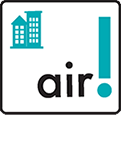Smoking damages your units and is a fire hazard. But did you know that secondhand smoke, drifting between apartments is a serious health hazard that could make you vulnerable to lawsuits?
Non-smoking tenants can bring legal action against the landlord or the smoking tenants under several common law theories, including:
- breach of the covenant of quiet enjoyment
- negligence
- nuisance
- breach of the implied warranty of habitability
- battery
- intentional infliction of emotional distress
- trespass
- constructive eviction
Secondhand smoke can interfere with disabled tenants’ ability to have equal access to and enjoyment of their housing. Depending on the case, certain tenants may be able to use the Americans with Disabilities Act and/or the Fair Housing Act to bring legal action against landlords for not making reasonable accommodations to protect them from secondhand smoke. Since air-sealing and ventilation technologies do not keep out secondhand smoke, the most reasonable way to accommodate tenants may be to create smoking restrictions or to move smokers and nonsmokers into separate buildings.
The American Society of Heating, Refrigerating, and Air Conditioning Engineers (ASHRAE) position statement on secondhand smoke states, “Currently, the only way to effectively eliminate health risk associated with indoor exposure is to ban smoking activity.”
